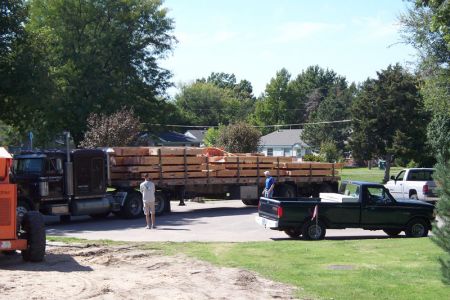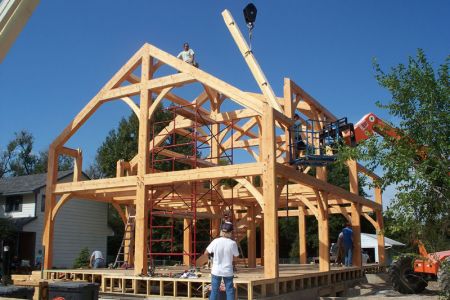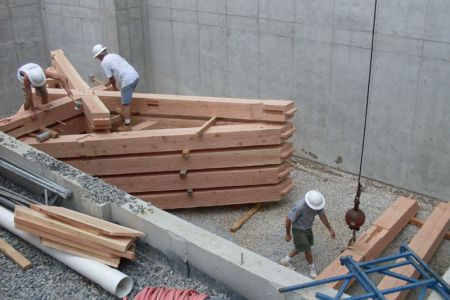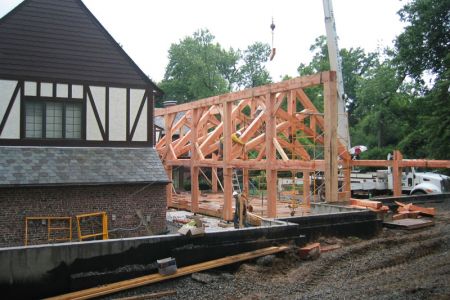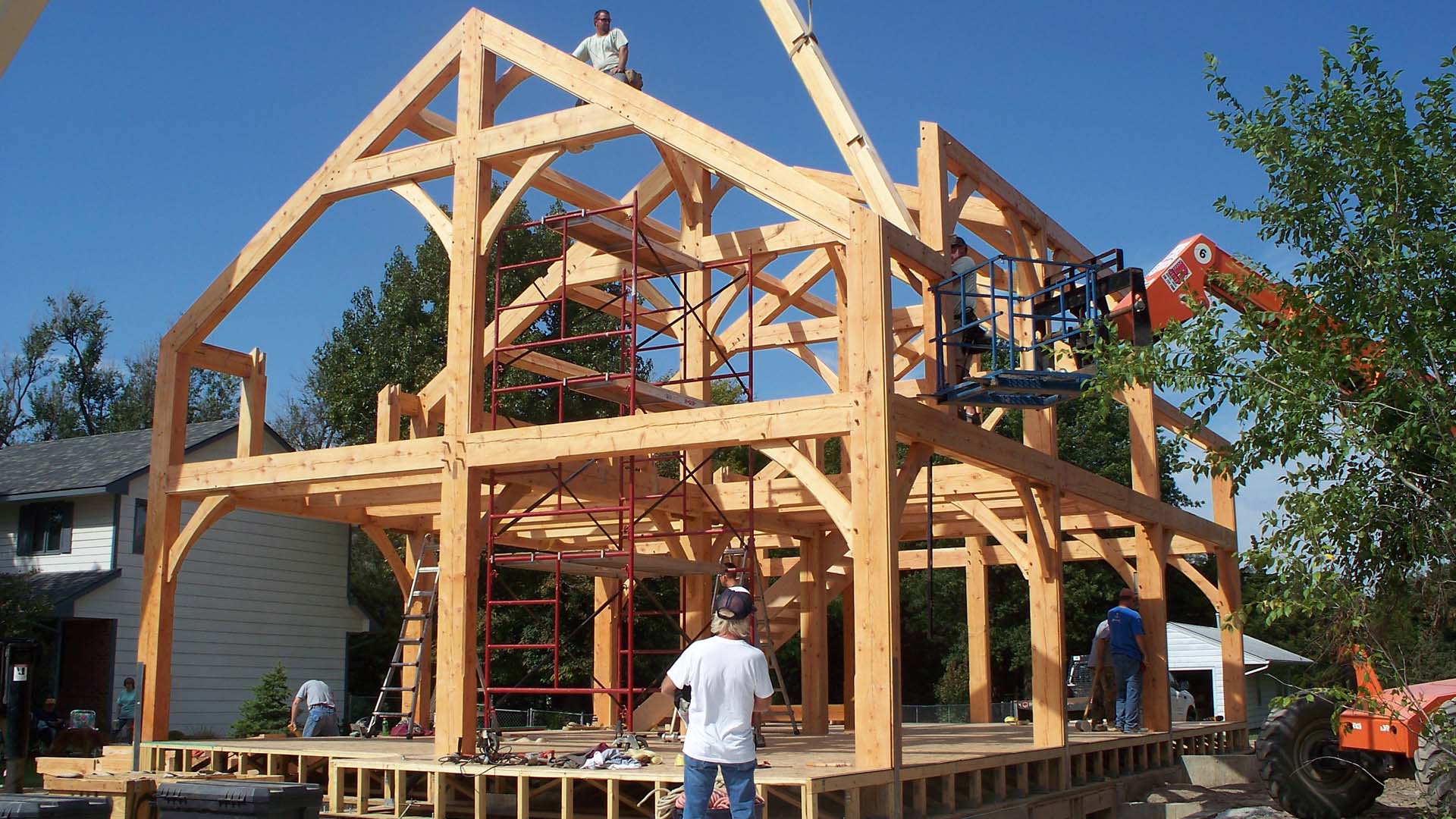
The Good:
Urban Convenience and Infrastructure
The proximity. You will be close to everything. Shopping, schools, medical, dining and entertainment, not to mention the utilities. Hooking up to city sewer, water, power can simplify the building process somewhat. Your phone will have a signal and downloading data will be faster. During the building process the proximity benefit also applies for us. Need a specific part at 2PM? The hardware store is ten minutes away. Crew needs lunch? There's 25 options within a short drive. There's something to be said for building where everything you need is right at hand.
The Bad:
Tight Spaces and Traffic Logistics
Room can be a problem (have you heard this before?). Building in the city can be problematic because of the numerous people already there. Meaning...traffic, one-way streets, parked cars, school buses, etc-etc. Remember, we need to transport BIG stuff to your jobsite. Building at the end of a cul-de-sac means that we have blocked about 6 driveways with semi-trucks, telehandlers, trailers, you name it. Morning rush hour? Afternoon school pickup? These become major scheduling considerations when you're trying to deliver 34 foot timbers through suburban streets. Unless arrangements have been made prior to our arrival, well...you probably won't be very popular within the ole' neighborhood, at least initially.
The Ugly:
Permits, Permits, and more Permits
Permits. Not all cities are guilty here, but the trend is for more permitting requirements, not less. We don't just mean a 'building permit', that is pretty standard, we mean 'use' permits. I can remember (I won't tell you where, unless you call me!) when we had 2 semi-trucks parked nose to tail, waiting to turn down this long driveway into the jobsite. The homeowner had multiple lots, which meant we had plenty of room to get the trucks in and get them unloaded. BUT...this jurisdiction required a 'use' permit for the homeowners driveway. Meaning...we couldn't use the driveway until the use permit was paid, AND, the code enforcement officer was standing in the driveway blocking access! Urban building means paperwork. Lots of it.
Urban Building Reality Check
What city timber frame construction really involves.
The Permit Marathon
It's not just a building permit
Every move requires paperwork and patience.
Neighborhood Relations
Six angry neighbors guaranteed
The semi will block driveways. The crane will
wake babies. The crew has to park somewhere. Apology cookies
help!!
Rush Hour Reality
Scheduling around traffic can be tricky
School zones, commute times, and one-way streets dictate
when big equipment can move.
Limited Staging Space
Every square foot costs
No room for material storage. Street parking is gold.
That sidewalk? Protected. Urban sites require logistics
gymnastics.
So why build timber
frames in the city?
Because walking to dinner, having great schools nearby, and
introducing traditional craftsmanship to urban landscapes creates
something special. Plus, nothing stops traffic like watching massive
timbers fly through the air downtown.
Ready to build your timber frame in the city lights? We've navigated city bureaucracy from Kansas City to Dallas. We know the permits, the process, and the patience required.
Contact Us
City Lights Timber Frame Home Gallery
These photos show what timber frame construction really looks like. Not downtown skyscrapers, but bringing traditional craftmanship right into established neighborhoods. See those houses just feet away? That's your typical city lot. Notice the careful timber stacking against concrete foundations, the precision required when your staging area is basically someone's front yard.
This is city timber framing: working within established neighborhoods, navigating utility lines, keeping the peace with neighbors, and somehow turning tight urban lots into home with the warmth and character of traditional timber frame construction. Every one of these projects proves that timber frames don't need acres to be amazing, they just need careful planning.
Build Your Dream Timber Frame Home with Clydesdale Frames
In Summary...'City Lights' building has a different energy. We are conscious of the fact that there are lots of eyes watching. Some of those eyes are curious about watching the big timbers fly, some are keyboard warriors and looking to stir up controversy, and some are calculating the dollars available to them if they could steal our stuff overnight and pawn it downtown. We get this. These scenarios are easily managed and we enjoy the proximity of hotels, food, and emergency runs to the hardware store if a drill bit breaks. No worries... The urban environment keeps us sharp, and there's satisfaction in proving that timber frames belong in cities, too, bringing craftmanship and character to urban landscapes with those city lights.
Ready to start your timber frame project?
If you'd like more information regarding your next timber frame project, we can answer your questions about building a custom timber frame space. Contact Clydesdale Frames Co. today to get started.
Copyright © 2018-Present Clydesdale Frames Company, All Rights Reserved | Privacy Policy
